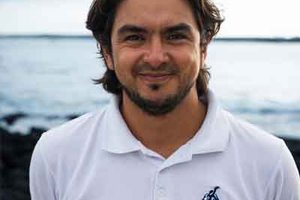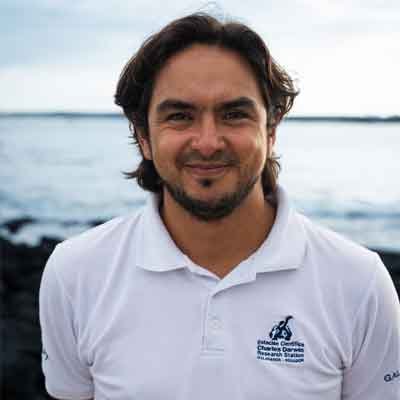Welcome to an exciting 32-week educational journey.
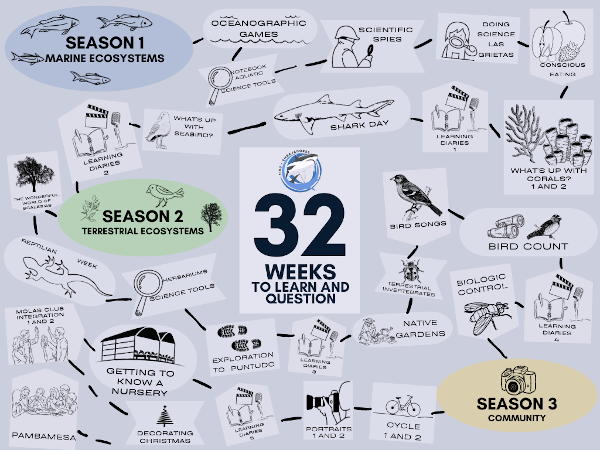
Every Wednesday afternoon we have a meeting with curious young minds to learn, question and connect with the world of science and conservation.
Our science club "Shark-Ambassadors" serves as a bridge between Charles Darwin Research Station (CDRS) research projects and the local community, allowing its members to learn through hands-on, playful experiences.
The Route2023 educational adventure is divided into three seasons:
Each stage has activities designed to stimulate curiosity and foster a passion for scientific research Also included are special segments such as "What's up with...?" and "Tools of science" where learning spaces are created about specific species or ecosystems, and tools such as the aquatic field notebook or herbarium, used in the different research methodologies, are built.
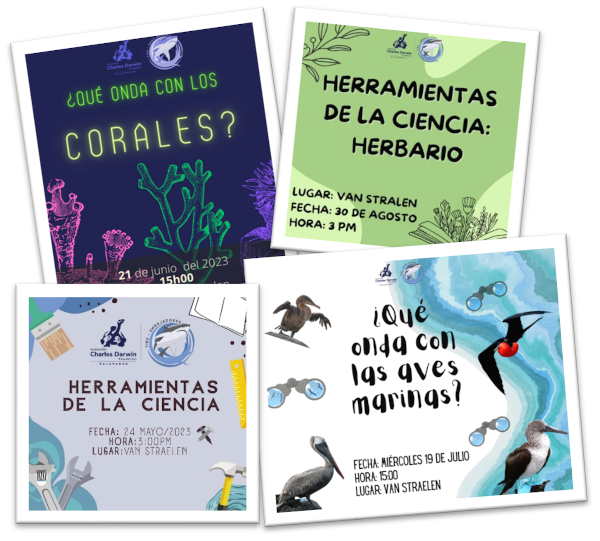
During Route2023, Tibu-Ambassadors will be part of 32 learning stops, ranging from connecting with the ocean in the Marine Season to exploring different vegetation zones in the Land Season. These experiences will culminate with the In Community Season, where critical thinking about issues in their community will be promoted. Each activity acts as a stepping stone towards the macro objective of raising awareness about the importance of conserving Galapagos ecosystems through science and community work.
The conceptualization of the learning spaces is noteworthy.
During this year's Vacation Club, the central concept was "Everything is interesting" and around this phrase, activities were designed that allowed participants to learn and reflect on the fact that everything around us (a rock, a cloud, a turtle or the entire sea) can be interesting.
For the Tibu-Ambassadors Route2023, the concept was "Break and Question"; where the one-way educational paradigm of the one truth is turned on its head and the freedom of questioning is encouraged to generate fresh ideas and meaningful discoveries.
How has the voyage progressed so far?
During the Marine Season, we conducted 11 activities in which we explored oceanographic concepts and marine species. A visit by scientist Nicolas Moity highlighted the "Dive Stat" project, which analyzes the impacts of dive tourism. As a practical continuation of this visit, the activity "Scientific Spies" was designed, where the Tibus applied elements of this methodology using the aquatic notebooks constructed in the "Tools of Science" segment.
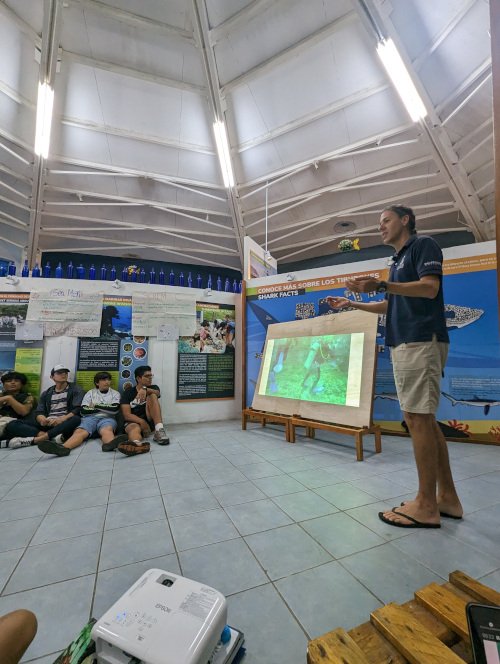
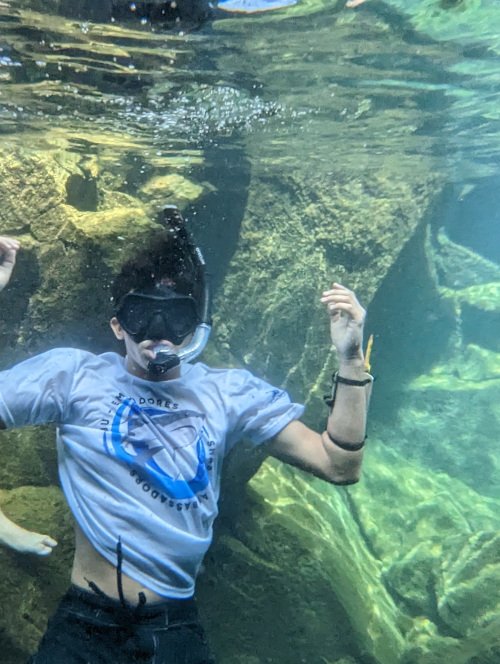
From August through October, we explored terrestrial ecosystems starting with "Reptilian Week", where we learned about lava lizards with Patrick Moldowan, principal investigator of the Charles Darwin Foundation's Terrestrial Turtle project. We also learned about herbariums, bio-acoustics and participated in the October bird count. There was also time for introspection through Japanese Ikigai philosophy. Here the Tibus reflected on their lives and personal motivations, without feeling judged.
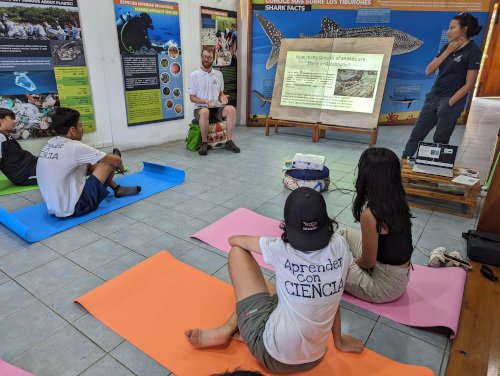
Finally, in November and December, the Tibu-Ambassadors explored their community through activities aimed at empowering the club with its environment, understanding the importance of the balance between nature and society.
The 32 weeks also integrate art as a transversality that allows the evaluation of knowledge, skills and abilities. Workshops called "Learning Diaries" were planned, where Tibus were able to express their experiences in stopmotion short films, podcast episodes and a fanzine.
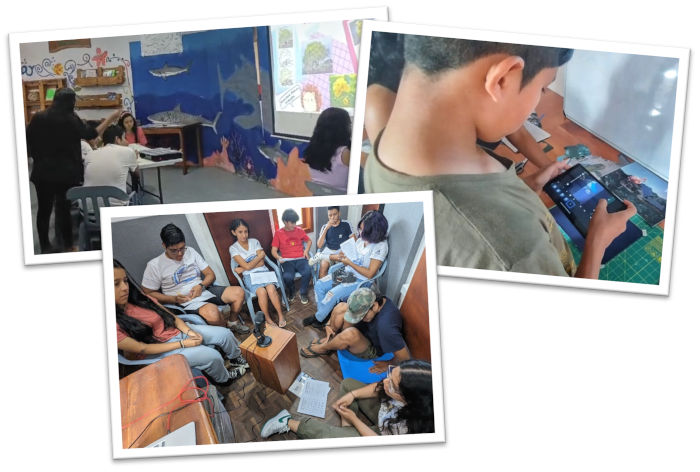
Connecting with the natural environment, fostering empathy, reflection, and empowering their community are the pillars that have guided the Tibu Ambassadors' Route 2023.
Throughout the 32 weeks, these young people have demonstrated that learning transcends the classroom and the community, challenging paradigms and living science and conservation in every corner of Galapagos.





